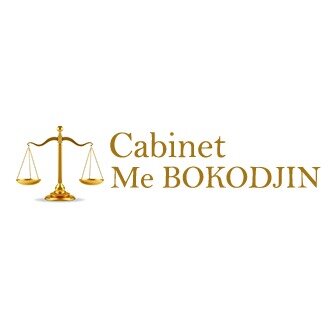Best Landlord & Tenant Lawyers in Lomé
Share your needs with us, get contacted by law firms.
Free. Takes 2 min.
Free Guide to Hiring a Real Estate Lawyer
List of the best lawyers in Lomé, Togo
About Landlord & Tenant Law in Lomé, Togo
Landlord and tenant law in Lomé, Togo is primarily governed by the Code des Obligations Civiles et Commerciales, which outlines the rights and responsibilities of both parties in a rental agreement. The law seeks to create a balanced relationship between landlords and tenants, ensuring fair treatment and protecting the interests of both sides. Given the increasing demand for housing in Lomé, it's important for landlords and tenants to understand their legal obligations and rights to avoid any disputes.
Why You May Need a Lawyer
Engaging a lawyer can be beneficial in various situations related to landlord and tenant matters in Lomé, Togo. Here are some common scenarios where legal assistance might be necessary:
- Drafting or reviewing rental agreements to ensure they comply with local laws.
- Resolving disputes over security deposits, rent increases, or lease terminations.
- Representing either party in eviction cases or claims for damages.
- Advising on how to handle non-compliance with lease terms by either tenant or landlord.
- Navigating complex situations like subleasing, repairs, and maintenance obligations.
Local Laws Overview
In Lomé, the following key aspects of local laws are particularly relevant to landlord and tenant matters:
- **Rental Agreements:** Contracts should be in writing and clearly specify the terms of the tenancy, including duration, rent amount, payment terms, and responsibilities of both parties.
- **Rights and Obligations:** Tenants have the right to a habitable dwelling and must pay rent on time. Landlords must provide a safe living environment and handle significant repairs.
- **Security Deposits:** Landlords can require a deposit, but it must be returned at the end of the lease unless justified claims for damages or unpaid rent are made.
- **Evictions:** A legal process must be followed for evictions, protecting tenants from unfair removal from the property.
- **Rent Control and Increases:** While not extensively regulated, any rent increase should be reasonable and ideally stipulated in the lease agreement.
Frequently Asked Questions
What should I include in a rental agreement?
A rental agreement should include the lease term, rent amount, payment terms, security deposit conditions, maintenance responsibilities, and the process for terminating the lease.
Can a landlord enter my apartment without notice?
Generally, landlords should provide notice before entering a tenant's apartment, except in emergencies, to respect the tenant’s right to privacy.
How can I legally evict a tenant?
To evict a tenant, a landlord must follow the legal eviction process, which includes providing proper notice and obtaining a court order if necessary.
What are my rights if my landlord does not make necessary repairs?
Tenants can issue a formal request for repairs. If ignored, they may seek legal intervention or, in some cases, make repairs and deduct the cost from rent, following appropriate procedures.
How much notice must a landlord give for a rent increase?
Notice for a rent increase should be reasonable and align with any terms specified in the lease agreement, typically 30-60 days.
Can I sublease my apartment without informing my landlord?
Typically, a tenant needs the landlord’s consent to sublease the apartment, unless the lease expressly allows it.
What should I do if my tenant refuses to pay rent?
The landlord should first communicate with the tenant to resolve the issue. If this fails, legal advice should be sought to handle unpaid rent situations appropriately.
Are verbal rental agreements legally binding?
While verbal agreements are technically binding, they are challenging to enforce. It is wise to have a written contract to avoid misunderstandings.
Can a tenant break the lease early?
Breaking a lease early can be done if there are legal grounds such as property issues, or with the landlord's agreement, often involving some penalty payment.
What steps should I take if I face eviction?
If facing eviction, a tenant should first understand the reason for eviction, negotiate with the landlord, and seek legal advice to potentially contest it in court.
Additional Resources
For those seeking additional resources or assistance in landlord and tenant matters in Lomé, consider contacting the following:
- Ministry of Urban Planning, Housing, and Living Environment for guidance on housing laws and regulations.
- The Togolese Bar Association for finding qualified legal professionals specializing in real estate law.
- Local mediation centers for conflict resolution services between landlords and tenants.
Next Steps
If you require legal assistance in landlord and tenant matters, consider the following steps:
- Gather all relevant documents, such as the lease agreement, communication records, and evidence of any disputes.
- Reach out to a local lawyer specializing in property law who can provide tailored legal advice.
- Explore mediation or alternative dispute resolution options if you seek a more amicable solution.
- Stay informed about your rights and obligations under local laws to better protect your interests moving forward.
Lawzana helps you find the best lawyers and law firms in Lomé through a curated and pre-screened list of qualified legal professionals. Our platform offers rankings and detailed profiles of attorneys and law firms, allowing you to compare based on practice areas, including Landlord & Tenant, experience, and client feedback.
Each profile includes a description of the firm's areas of practice, client reviews, team members and partners, year of establishment, spoken languages, office locations, contact information, social media presence, and any published articles or resources. Most firms on our platform speak English and are experienced in both local and international legal matters.
Get a quote from top-rated law firms in Lomé, Togo — quickly, securely, and without unnecessary hassle.
Disclaimer:
The information provided on this page is for general informational purposes only and does not constitute legal advice. While we strive to ensure the accuracy and relevance of the content, legal information may change over time, and interpretations of the law can vary. You should always consult with a qualified legal professional for advice specific to your situation.
We disclaim all liability for actions taken or not taken based on the content of this page. If you believe any information is incorrect or outdated, please contact us, and we will review and update it where appropriate.











